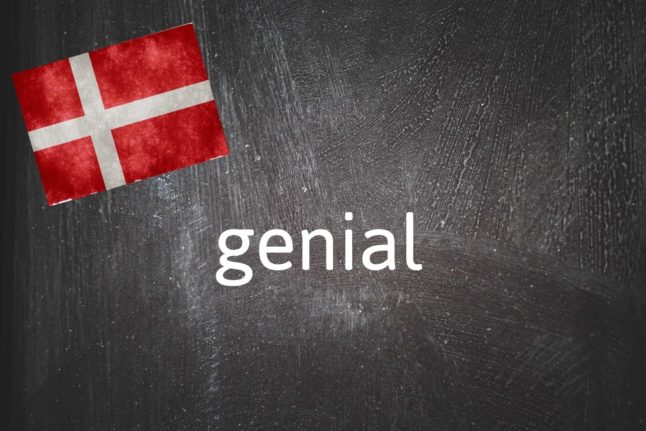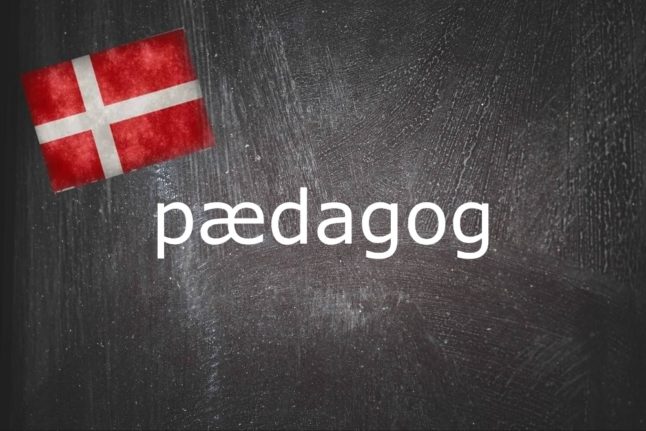What is genial?
Genial literally means “brilliant” as in “of genius” (for example: det var en genial idé — ‘that was an ingenious idea’). It’s an adjective, so you can use it to qualify any noun you want to describe as genial. Like most Danish adjectives, it can be switched to an adverb with the addition of -t.
But it’s also come to mean a lot more than that. In Danish conversation, genial can mean “great”, “awesome”, “fantastic” or anything positive in exactly the same way as “brilliant” has come to be used in English.
Why do I need to know genial?
Genial or genialt is a common Danish word that has nothing to do with the English word “genial” (i.e. friendly, pleasant, cheerful). You’d probably say venlig (“friendly”) in Danish if you wanted to replicate the English “genial”.
You may also hear genial being used with the negation ikke in front of it. This can be applied to describe an action that didn’t go well or was ill-advised: Det var ikke så genialt, at han efterlod sin computer, da han skulle bestille kaffe:
“It wasn’t a great idea to leave his computer unattended when he was ordering coffee”.
Genial is often heard in conversation and has taken on a much broader meaning than its original use.
In conversational Danish, genial can also be used on its own to respond to something or as an exclamation, again, just like ‘brilliant’ or ‘great’ is used in English: I stedet for at mødes ved banegården, skal vi ikke mødes ved biografen? —
Det er genialt – jeg bor kun fem minutter derfra. (“Instead of meeting at the train station, do you want to meet at the cinema? —
Great, I only live five minutes from there.”)
Examples
Mine nye løbesko er helt geniale.
My new running shoes are amazing.
Det var genialt sagt.
That was a brilliant response.
Ej hvor genialt, du har købt havremælk til kaffen.
Ah that’s great, you bought oat milk for the coffee.
Du danser genialt.
You’re a brilliant dancer [literally, “you dance brilliantly”].



 Please whitelist us to continue reading.
Please whitelist us to continue reading.
I think this probably come from French. Génial in French has the same meaning of “brilliant” as it does in Danish.
https://www.thelocal.fr/20190313/french-word-of-the-day-style/